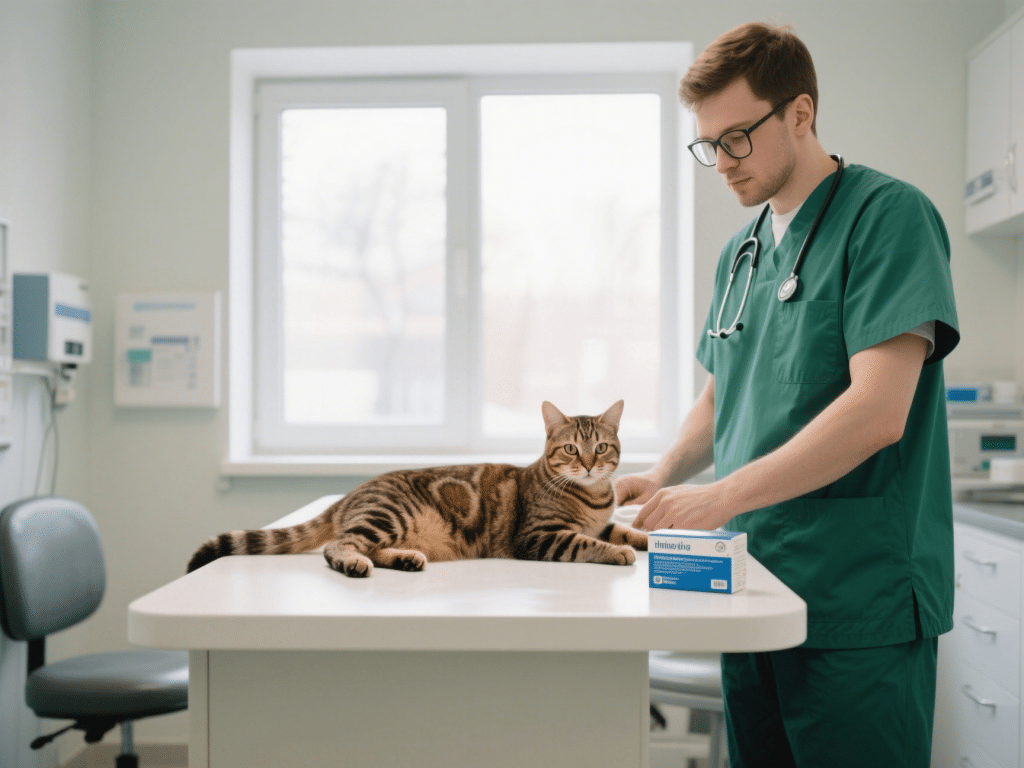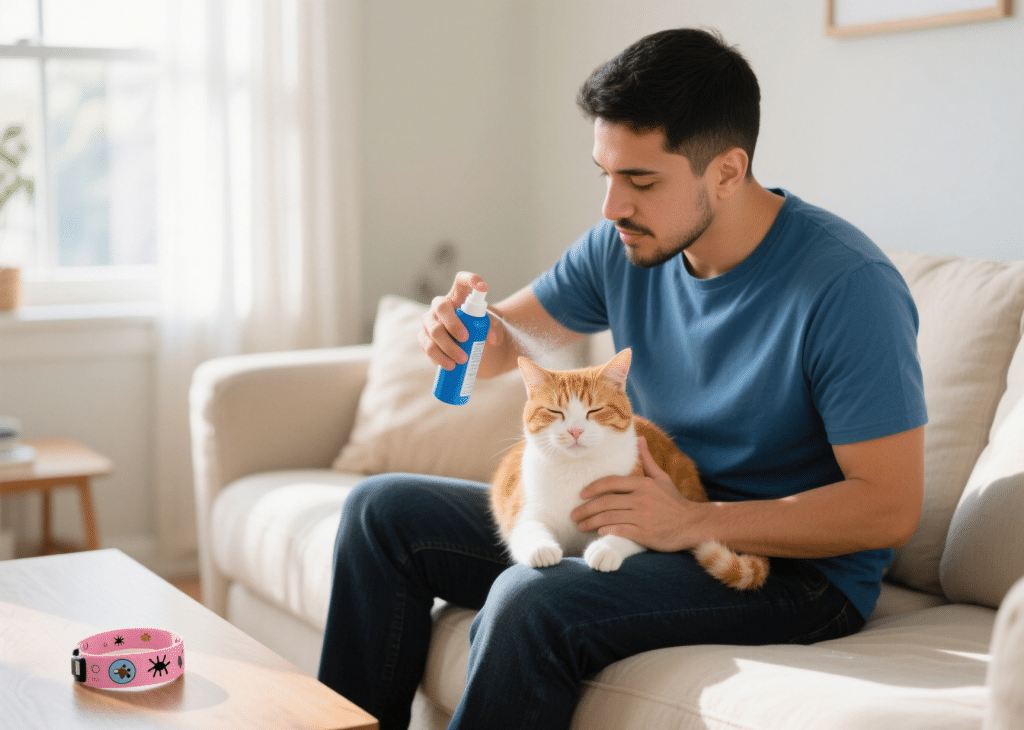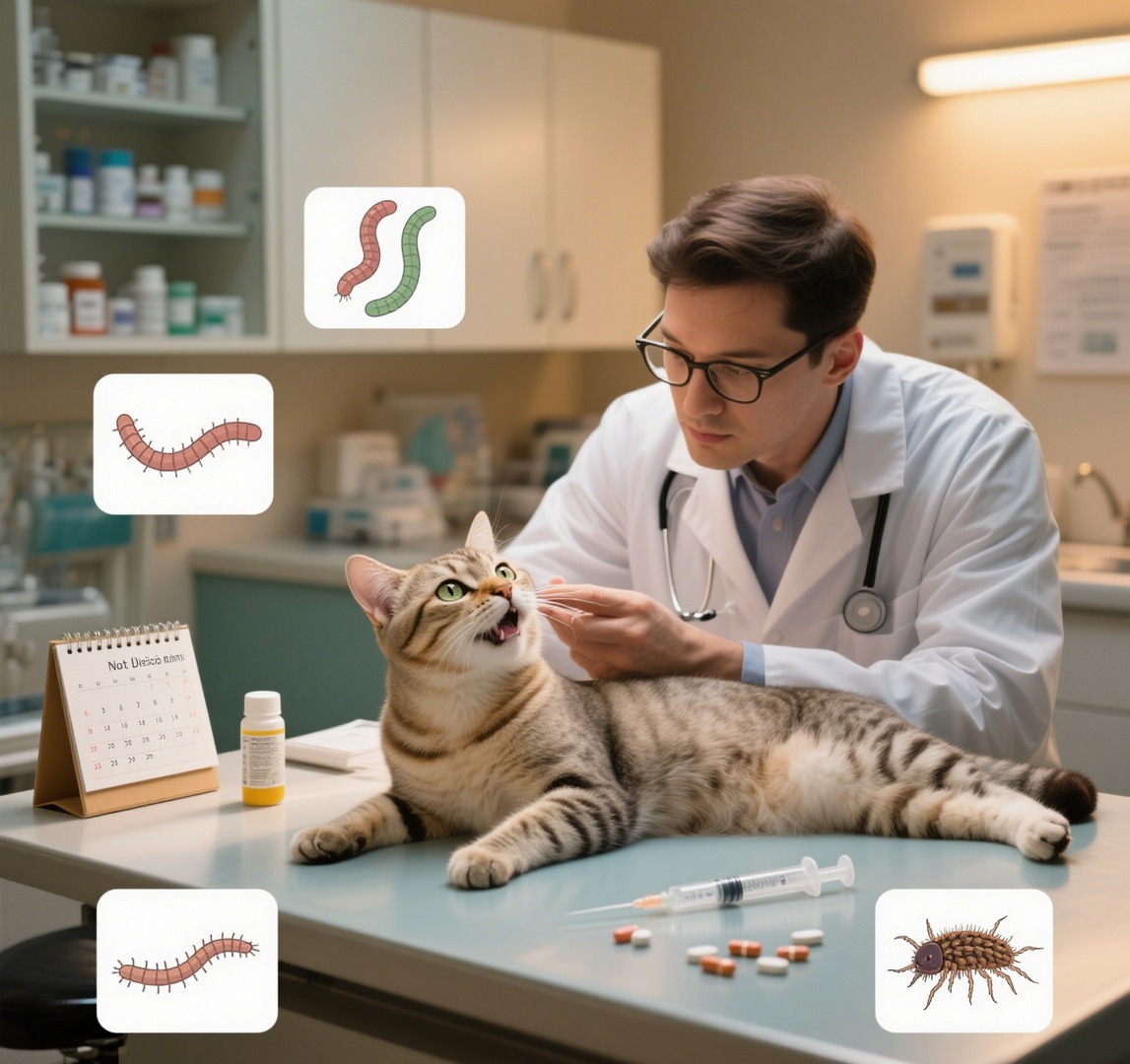What to Do If Your Cat Loses Appetite After Deworming
Understanding Post-Deworming Appetite Loss in Cats
It’s common for cats to experience temporary appetite reduction within 24-48 hours after deworming. This occurs because:
Deworming medications (e.g., pyrantel pamoate, fenbendazole) irritate the gastrointestinal tract
Dying parasites release toxins causing nausea
Stress from administration alters eating patterns
Critical Timeline: When to Act
| Time Since Deworming | Expected Reaction | Red Flags |
|---|---|---|
| 0-24 hours | Mild disinterest in food | Complete food refusal |
| 24-48 hours | Gradual return to normal eating | Water refusal or lethargy |
| 48+ hours | Full appetite restoration | Vomiting/diarrhea persists |
5 Proven Recovery Strategies
Appetite-Stimulating Foods
Warm strong-smelling options like sardines in springwater or powdered FortiFlora probiotic sprinkled on food. Avoid onion/garlic-containing products.Hydration Protocol
Offer electrolyte-enhanced water (unflavored Pedialyte) via syringe if intake decreases. Subcutaneous fluids may be needed if skin tent test >2 seconds.Digestive Support
Veterinarian-recommended probiotics like Proviable DC restore gut flora disrupted by dewormers. Avoid OTC human supplements.Environmental Adjustment
Reduce stressors: Separate from other pets during feeding, use ceramic bowls (prevents plastic smell aversion), and maintain 22-25°C ambient temperature.Medical Interventions
If anorexia exceeds 48 hours:Anti-nausea injections (Cerenia)
Appetite stimulants (Mirtazapine transdermal gel)
IV fluid therapy for dehydration
When Emergency Vet Care is Non-Negotiable
Seek immediate veterinary attention if these danger signs appear:
Yellow-tinged gums (jaundice indicator)
Temperature <37.2°C or >40°C
Projectile vomiting containing bile
Lethargy preventing standing
Prevention for Future Treatments
Request emesis-preventing injection (maropitant) pre-deworming for sensitive cats
Use liquid formulations instead of pills if administration causes trauma
Schedule treatments before weekends to monitor reactions
Most cats resume normal eating within 2 days. Persistent cases may indicate:
Underlying conditions masked by parasites
Medication overdose
Rare drug reactions requiring antidotes
Always maintain post-treatment communication with your veterinarian and document recovery progress hourly during critical periods. Early intervention prevents 92% of severe complications according to 2024 Journal of Feline Medicine studies.
Explore Dogs

Multi-Cat Household Deworming: Preventing Parasite Spread
IntroductionIn multi-cat households, parasites can spread rapidly between cats, resulting in recurri...
Read More
Understanding Deworming Requirements for Senior Dogs
IntroductionSenior dogs (7 years and older, breed-dependent) may have altered metabolism, compromise...
Read More
Monthly Deworming Schedule for Adult Dogs: Optimal Timing and Products
IntroductionAdult dogs can harbor intestinal parasites year-round, risking health complications and ...
Read More
Seasonal Deworming Strategy: Fleas in Summer, Roundworms in Winter
Why Seasonality Matters in Parasite ControlTemperature and humidity fluctuations dramatically influe...
Read More
Clinic vs. At-Home Deworming for Cats: Making the Right Choice
Clinic vs. At-Home Deworming for Cats: Making the Right ChoiceChoosing between clinic-based and at-h...
Read More
How to Flea-Proof Your Home: 7 Proven Ways to Create a Parasite-Free Environment
How to Flea-Proof Your Home: 7 Proven Ways to Create a Parasite-Free EnvironmentFleas pose health ri...
Read More
Deworming Cats Externally: Spot-On Treatments vs Collars vs Sprays
Deworming Cats Externally: Spot-On Treatments vs Collars vs SpraysIntroductionExternal parasites suc...
Read More
Indoor Cats and Worms: Common Myths and the Truth About Deworming
Indoor Cats and Worms: Common Myths and the Truth About DewormingMany cat owners believe that indoor...
Read More
Why Cats Require Regular Deworming: Understanding Internal and External Parasites
1.1 Internal Parasites• Ascarids (Roundworms): The most common intestinal parasites, often causing...
Read More